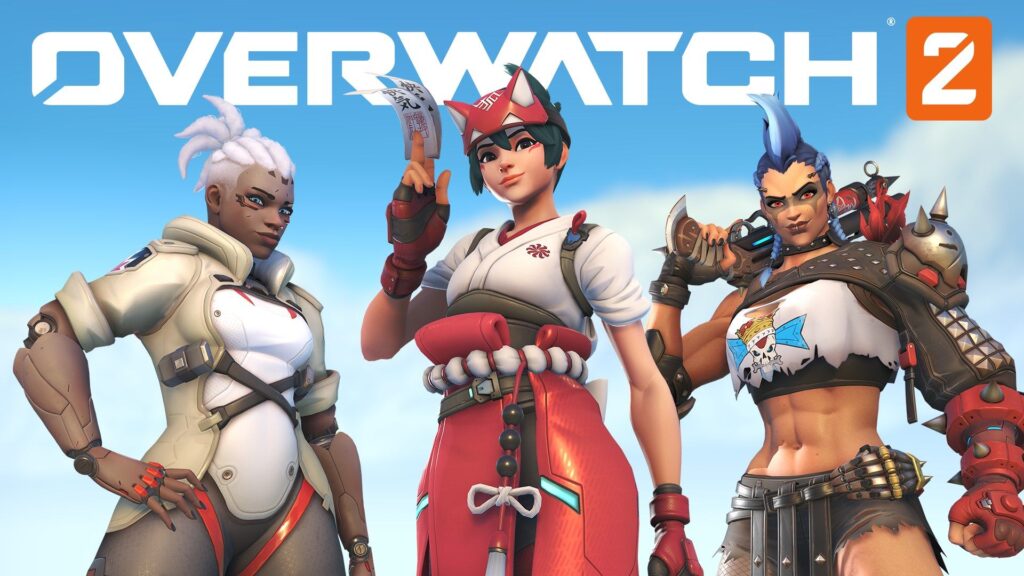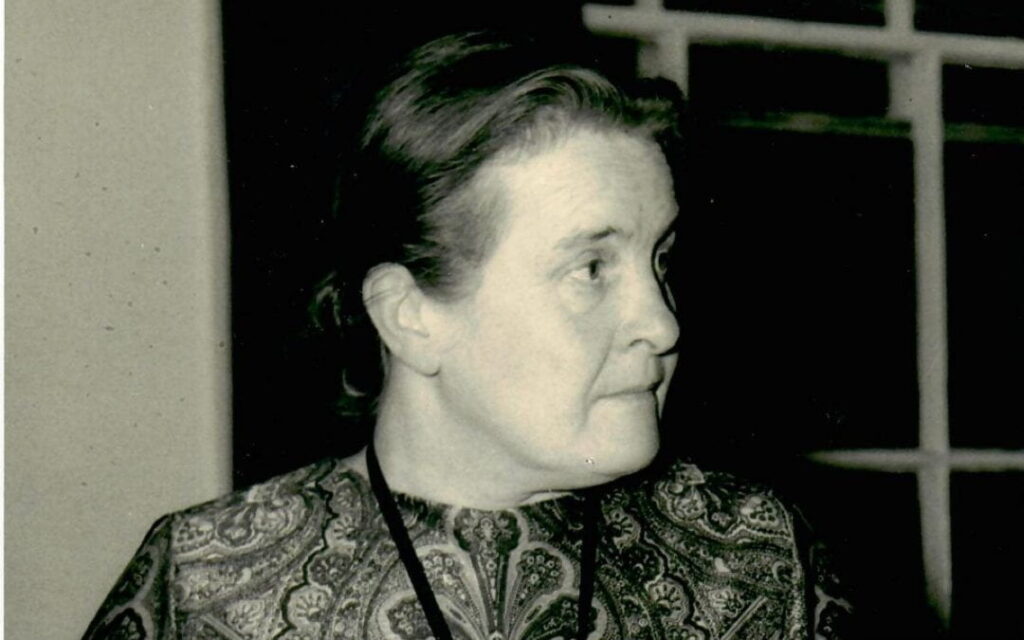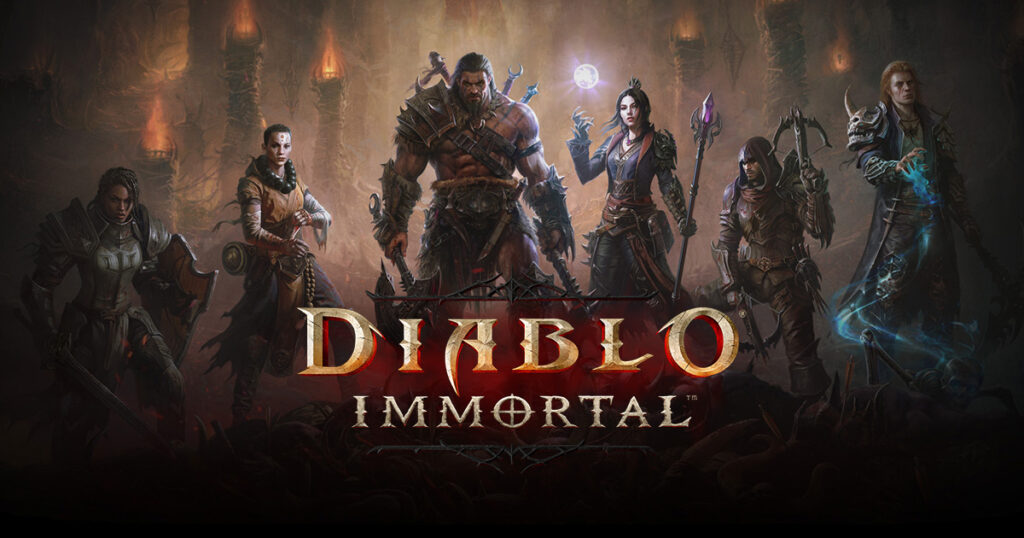
Man, Blizzard has had a rough half decade and I mean really rough even for such a titanic company. For those of you who are not aware, Blizzard not only lost two of its co-founders and some prominent talent, they’ve been on the receiving end of a California lawsuit regarding discrimination against women, sexual harassment, and the stealing of breast milk, denied a professional player’s winnings due to Blizzard’s association with China against Hong Kong pro-democracy protests, and inadvertently perpetuated tokenism by disclosing their Diversity Space Tool which is used to determine how diverse their video game characters are based on several factors, including sexual orientation, ethnicity, and body type. And to put the cherry on top, in May Blizzard canceled a core feature that they promised was to be part of their newest game: Overwatch 2. So why is it a big deal that this feature was removed?
The Problem with Overwatch 2
It’s normal for games to be replaced or expanded upon by subsequent sequels. Looking at the Super Smash Bros. series, the average gap between their games is about 5 years. Furthermore, due to their lack of or limited downloadable content, they become outdated quickly which requires a sequel to be made.
However, Overwatch 2 and its predecessor are different from those types of games. They are more akin to League of Legends, an online, free-to-play multiplayer game that receives new content on a regular basis. Due to their gaming model, they don’t require sequels because there is always something new with each patch.

So, the first problem with Overwatch 2 was that it was announced in 2019, three years after the release of Overwatch. The timespan between the two games was too short, and was further exacerbated by people assuming that Overwatch would be updated rather than replaced.
Second problem: Announcing Overwatch 2 effectively killed its predecessor. Overwatch was still up and running but a majority of the development team for that game moved to its successor. What does that mean? It means updates and new content for Overwatch were infrequent at best, and non-existent at worst.

Third problem: Remember how I mentioned how Overwatch 2 fit a free-to-play model? Well, Overwatch 2 took the idea and trashed it. It’s still free-to-play of course, but the games made money by offering cool assets for the characters you played. These could be bought with in-game or real currency, but Overwatch 2 has decided to make that impossible.
The last problem is that the core feature of Overwatch 2, being a single-player story mode, which is the reason why a majority bought this game, was canceled! Was it wrong for Blizzard to make a promise they could not fulfill, or even had no intention of keeping? In order to figure that out, we need to discuss why promises are important.
What are Promises?
We all intuitively understand that keeping promises is correct and breaking them is wrong. I think that most of us would agree, on a subconscious level, that people who break their promises are untrustworthy while those who keep them are trustworthy.
From a technical perspective, promises impose moral obligations, namely what the promisee (i.e. the person who made the promise) owes to the promisor (i.e. the person who benefits from the promise being fulfilled). What makes promises different from other moral obligations is that they are not equally owed to everyone.
Moral obligations are fundamentally applicable to every person, regardless of their gender, ethnicity, physical and mental states, or relation to you. For example, it is morally wrong to murder or rape any person. Thus, we are not allowed to do those things to anybody. On the other hand, promises are only owed to the promisor.

So what exactly is a promise? I think it’s easy to recognize what it is, but difficult to explain. In the realm of philosophy there are a few interpretations that are significantly different, but the definition I’m going to use comes from a professor I had during my undergraduate days: Margaret Gilbert.
Gilbert states that promises are joint commitments. A joint commitment is one personal commitment between two people. The promisor creates their personal commitment, and the promisee agrees to expect said commitment to be fulfilled. So, for example, I invite my friend CJ to go to a museum with me. My invitation is a personal commitment I’ve created, and CJ will expect me to fulfill it by taking him there. Once these two conditions are met, it becomes a promise that is a joint commitment between the two of us.

Now, before we discuss if breaking promises are unethical, we need to address some edge-cases. The ideal promisee needs to be aware of the promise, acknowledges that they are part of this commitment, and expects it to be fulfilled. Judith Jarvis Thomson considers these the uptake condition.
Examples of people that don’t meet this condition include the dead or dying since they can’t be harmed by unfulfilled promises, and young children and people with cognitive limitations since they may not be aware of being part of a promise. Going forward, for sake of brevity, I’m going to assume we are all ideal promisees to Blizzard.
Types of Broken Promises
Have any of us ever made a promise that we don’t think we can complete, or that has a low chance of being fulfilled? I’m definitely guilty of that because I have a habit of being a yes man in an attempt to avoid disappointing people. Of course it ends up backfiring because I’ve made two or more promises that conflict, causing me to only keep one or, potentially, none.
Making a promise while having evidence that we won’t be able to fulfill it, such as promising to walk your dog after work knowing you’ll work overtime, is irrational. That’s the equivalent of telling someone it’s raining while believing it’s not raining.

Likewise, making a promise without the intent to fulfill it is, not only lying, but also insincere. If I promise to loan $500 to a friend and plan to never give them the money, then I’ve made an insincere promise.
Given these two types of broken promises, is doing either of them unethical? Well, there are five arguments, one for and four against, that address that question.
Why Breaking Promises is Unethical
The one argument for this notion states that no person can promise against the evidence. In other words, if you have enough evidence to convince you that the promise you’ll make will be broken, then you cannot make that promise. This is known as the evidentialist constraint, wherein the constraint prevents the evidentialist, the promisor with evidence, from making irrational or insincere promises.
I am notoriously known for being late to family gatherings (anybody else out here contending with LA traffic?), but let’s say I promised my aunt that I will arrive an hour early to help her set up for a party. If I enforce the evidentialist constraint, I am not allowed to make that promise because there is a history of me being late more often than being on time, nonetheless an hour early.

However, the counterargument comes in the concept of the human will. How many of us base every decision we make off of past evidence? There are some obvious cases, such as not shooting a person because it will harm them, but we consider these causally related. Two events, such as me pulling the trigger and a person being shot, are causally related when the first event directly causes the second event.
Given the above definition, making and breaking a promise are not causally related. There is no guarantee that I will break a promise I have made, just like how there is no guarantee I will fulfill that promise either. Promises are reliant upon our will. Take, for example, going to Starbucks. When you order a drink at Starbucks, do you think “Hmmm I’ve ordered a pink drink (sorry I don’t drink coffee) 76% of the time, so I’ll order it again because it’s what I choose the most!”. Yeah, no, that’s just insanity. I can’t even remember what I had for breakfast last Monday, nonetheless what percentage of drinks I ordered being a pink drink. A majority of the decisions we make are based on what we desire rather than what we have statistically chosen before.
Likewise, we make promises not because we have evidence supporting their chances of being fulfilled, but because we want to. We essentially will our promise into being and then it’s up to us to keep it.Why Breaking Promises is Unethical
It’s Fine to Break Promises
The first argument goes something like this: When we make a promise, we are really making a promise to try. This seems quite intuitive if we take into account that making a promise is created through our will. When I will my promise into being, I will try to fulfill it. There might be obstacles in my way, such as getting a flat tire on my way to pick up my mother from the airport, but I intended to complete it.
Now imagine marrying or celebrating your anniversary with the love of your life, and telling them you’ll try to be faithful. Yikes, that’s not going to pass! Marriage vows are akin to a promise and are fair game, but what is the difference between this and promising to pick up my mom from the airport?

Well, some promises can be affected by external forces. Getting a flat while driving or being late for a party were promises broken due to factors outside our control. On the other hand, promising to be faithful can only be broken when we choose to stop enforcing it. If we created a horrendous scenario where one half of a couple was raped, their spouse would not accuse them of cheating because that was an external factor. So, given this edge case, the first argument fails.
The second argument argues that promises are reliant only on the promisor’s intent, not the results. There are real world situations that support this idea, but there is a camp that would say “the road to hell is paved with good intentions”. Needless to say, results matter in some cases. Given that, it’s enough to see how quickly this argument falls apart.

The third argument, as proposed by Elizabeth Anscombe, follows a unique line of thought:
- We create a promise.
- Creating a promise makes us decide to fulfill it.
- Because we decided to fulfill it, we gain practical knowledge that trumps all past evidence that may constrain us.
I work hard and eat healthy throughout the week. To avoid burning out, I promise to treat myself to a cheat day every Friday after I clock off. I promise myself a cheeseburger, I decide to fulfill that promise, and my decision to fulfill it is practical knowledge. Practical knowledge is knowledge we acquire through experience, and that would include the process of fulfilling our promises.
Unfortunately, as lofty as that all sounds, real situations prove that just because we decide to do something, doesn’t mean we’ll actually do it. How many of us have attempted to go on a diet or go to the gym consistently? I know I’m slacking because I’ve been paying monthly for a gym membership and haven’t been since February. The issue with our practical knowledge is that it really doesn’t trump past evidence. Our past history is proof of how we might potentially act in the future, and it defeats our practical evidence.

Taking that gym example again, I purchase a membership and decided to exercise. I have evidence that I won’t have time to exercise because of other things in my life: a family, working overtime, a long commute, household chores, running this blog, etc. The evidence I have proves that I won’t fulfill my promise, at least consistently, thus my past evidence overrides the practical knowledge I created.
I realize at this point I’ve presented four arguments across the last two sections that have led nowhere. I have implicitly not held my promise to discuss why breaking promises is not unethical. This is where I fulfill it.
Evidence and Reasons
Immanuel Kant famously espoused that we all act “under the Idea of freedom”. His moral theories are honestly quite complicated and beyond the scope of this article, but we should try to discern what he meant.
There is a popular thought experiment that asks if humans have free will, given that some entity exists that could predict the future. It hastily concludes that if the entity knows every action we will make, all of our actions are predetermined, and we don’t have free will because we can never act in an unpredictable manner. Basically, every action we make is not because we chose to do it, but because it was supposed to happen whether we wanted to do it or not. Kant, being a God-fearing philosopher, concluded that free will doesn’t exist but we, as rational persons, can act as if we were free. We do not freely act but we do act under our idea of freedom.
To act as if we have free will would entail looking at practical reasons for our actions. Imagine that we went to the grocery store and bought cookies. God or some other entity knows we were going to buy the cookies, but we bought them, not because God already knew but because we wanted them. We believed we wanted them, acted under this idea of our freedom by purchasing the cookies, and the practical reason for why we acted was because we wanted them. Given this basis of practical reason, does it counter our past evidence?

Rather than practical reason opposing past evidence, promises should be made taking both into account. If I promise my parents that I’ll take care of them when they’re older (anyone else an only child?), what past evidence is there that would prevent me from keeping it? Well, I’ve seen my father occasionally struggle to take care of his mother due to their conflicting personalities. I’m aware that my parents want to live in a different country when they retire, and I know how difficult it would be to drop everything and have to bring them back to the United States while having kids of my own. Additionally, I would have to make sure I have a house large enough to accommodate everyone and earn enough income to fully support them.
Given all the above evidence, rather than using it to decide if I should make a promise or not, I should use it to determine how difficult upholding my promise should be. For instance, I would not promise to parkour between seven story buildings. My inexperience and fear of heights increases the difficulty to such an amount, that it’ll be extremely hard for me to fulfill that promise. On the other hand, promising to be faithful requires me to always love my wife through all the good and bad times, never cheat, and show my love for her on a daily basis. This may be difficult, especially as time goes on, but it’s something I know I can commit to. So, where does that place Blizzard?
A “Defense” for Blizzard
Blizzard obviously broke their promise in what Overwatch 2 was supposed to be. It is a product that is incomplete compared to what was promised, and they do seem culpable since hundreds of thousands of people paid for it expecting a specific experience. But, let’s compare them to another monumental company: Marvel Studios.
Marvel Studios is known for releasing movies that connect into an overarching storyline that is separated by blockbusters featuring multiple crossover appearances (e.g. The Avengers). Imagine that we paid and watched every film in Phase 5 and right before the blockbuster Kang Dynasty came out, it was canceled which might not be too far-fetched. Does Marvel Studios owe us anything for canceling a blockbuster we expected because we paid hundreds of dollars on the previous movies?
I’m not saying that Blizzard should not receive any blame, but I think a majority of the community is being too harsh toward the game developers. They were working on a feature that they wanted that was canceled by Blizzard leadership. I don’t want to point any fingers but I don’t think a free-to-play single-player story mode can compare to the millions Diablo Immortal makes on a daily basis.

Yeah, it really sucks that they broke their promise and it will most likely cause not only the end of Overwatch 2, but the end of the entire franchise. It could potentially end Blizzard because this debacle has only added fuel to the fire they’ve been kindling for the last half decade. But going forward, we should take all promises with a grain of salt and not be too upset when they’re broken.
However, and I am pointing this directly at Blizzard and other large entertainment companies, just because it’s not unethical to break promises, doesn’t mean there aren’t repercussions. Consistently doing so will make you untrustworthy in the eyes of your long-time fans. If it wasn’t for these kinds of people, you wouldn’t be in the high position that you currently hold.
Below are a list of resources I used that weren’t mentioned in the article
- Promises
- Promising Against the Evidence #1
- Promising Against the Evidence #2
- Promising Against the Evidence #3
Sometimes people don’t understand the promises they’re making when they make them
~ John Green



